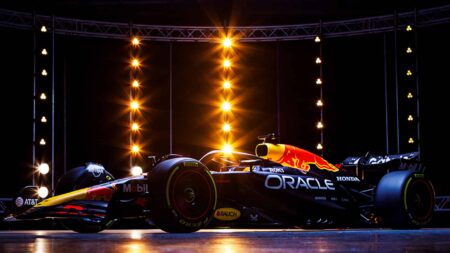Bill Ford, executive chair of Ford, has hailed the brand’s return to Formula 1 as “a thrilling new chapter” bringing Ford’s heritage to motor sport’s most visible stage, with the collaboration set to run until at least 2030.
The blue oval’s reappearance on an F1 engine cover in 2026 will come more than 20 years after Ford last powered a grand prix car — Jordan’s 2004 challenger.
But its heritage dates from decades before when Ford’s inaugural grand prix engine, the Cosworth DFV, dominated F1. Having made a winning debut in the back of Jim Clark’s Lotus 49 at the 1967 Dutch Grand Prix, the 3-litre V8 engine powered multiple championship-winning cars through the 1970s.
Ford’s technical partnership with Cosworth brought further championships with Benetton and Michael Schumacher in the 1990s, although its more direct involvement through Stewart and Jaguar, which began later that decade, was less successful.
To date, Ford-badged engines have contributed to 10 constructors’ and 13 drivers’ titles. The 2026 partnership with Red Bull aims to extend and update this legacy in the hybrid-electric era of Formula 1.
Is Ford building its own F1 engine?
Ford is not building a Formula 1 engine entirely on its own for the 2026 season, but it is playing a significant role in the development of the new power unit that will power Red Bull Racing and sister team Racing Bulls.





